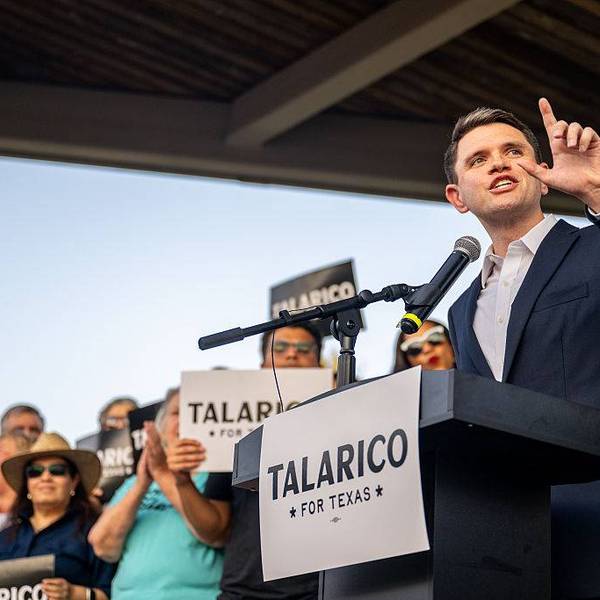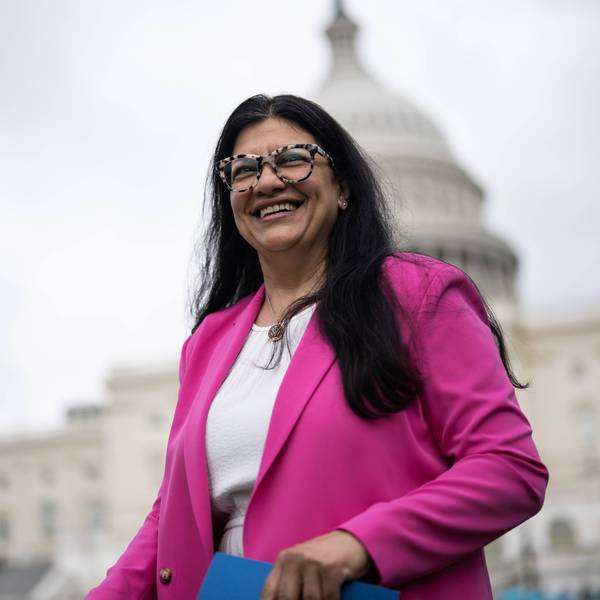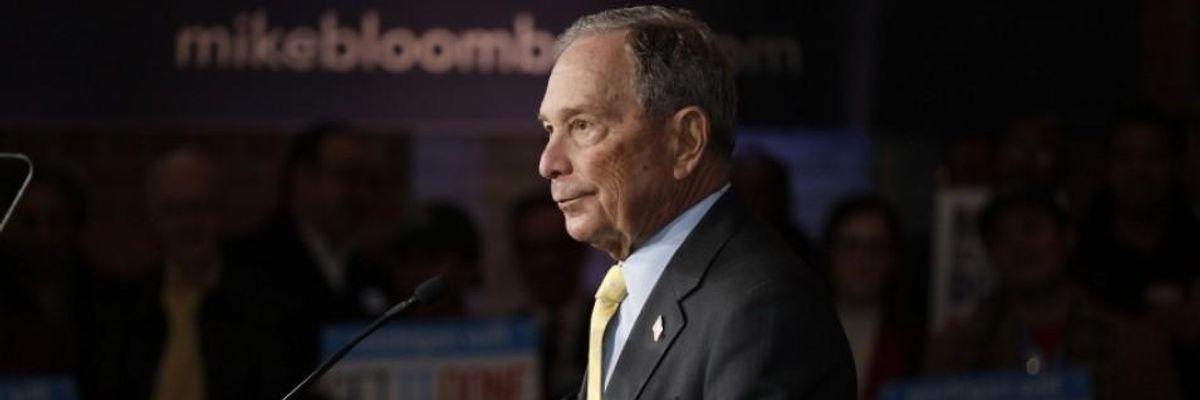When folks say that billionaires shouldn't exist, it's nothing personal. Some billionaires are nice enough. Some spend generously on philanthropy.
That all sounds great. But we don't need more do-gooder billionaires that give to charity--we need fewer billionaires.
The problem isn't really individuals making money. The problem is having an entire system that grows the wealth of billionaires at the expense of everything else we care about--including our democracy.
As the concentration of wealth in our country accelerates, an increasingly small sliver of the population enjoys an increasingly large say over how wealth and power are distributed. And make no mistake: Wealth is concentrating.
My colleagues and I found that, in 1990, the total wealth of all US billionaires was $118 billion in today's dollars. Last year, we found, it grew to over $3 trillion.
Just three of today's billionaires -- Jeff Bezos, Bill Gates and Warren Buffett -- now own as much wealth as the bottom half of all US households combined. When you count the whole Forbes 400, that figure rises to nearly two-thirds of our households combined.
Does this rising tide lift all boats? Hardly. While billionaire fortunes balloon, about a fifth of Americans have zero or negative net worth. And nearly two-fifths of us don't have the cash on hand to cover a $400 emergency, according to the Federal Reserve.
Why does this happen?
Part of the reason is that many billionaires invest their fortunes in a way that only expands their own wealth and power -- like backing politicians who cut their taxes and block investments in programs that many Americans rely on, such as early childhood education, low-cost college or safety net programs. It also involves buying access to a complex array of financial tools to drastically reduce their tax liability. This leaves far fewer resources to support programs that help ordinary people.
Sometimes their methods are obvious. Extremely wealthy individuals may spend hundreds of millions on political contributions with the aim of influencing policies that will benefit them. Others, like Mike Bloomberg, can spend unprecedented sums seeking office themselves.
In their book Billionaires and Stealth Politics, political scientists Benjamin Page, Jason Seawright and Matthew Lacombe found that billionaires favor cutting their own taxes and reducing social safety net benefits -- and their political contributions, whether they go to Democrats or Republicans, reflect these preferences. With their money driving a huge share of political spending, it's no surprise our social safety net is fraying -- and, after the billionaire-backed GOP tax cuts, working-class Americans now pay higher tax rates than billionaires.
But there are also less obvious ways.
For instance, multimillionaires and billionaires support an entire "wealth defense industry" of professionals -- tax lawyers, accountants, wealth managers -- that help hide their fortunes in offshore tax havens and dynasty trusts. With billions of otherwise taxable dollars stashed overseas, middle and working-class taxpayers who don't have access to these mechanisms are left covering a larger share of the US tax burden.
Other billionaires may secure huge tax write-offs for charitable donations.
We may be impressed when Michael Bloomberg gives $1.8 billion to Johns Hopkins University, or Jeff Bezos announces a $10 billion gift to address climate change. But for non-billionaire taxpayers, that means more lost tax revenue to cover.
Billionaire charity may be directed toward noble endeavors, but it is not a substitute for billionaires paying their fair share of taxes that provide essential services like health care, schools or infrastructure.
Some charitable giving vehicles, like Donor Advised Funds, can secure huge tax benefits for givers without actually mandating them to support real nonprofits. While traditional tax-privileged charitable foundations are required to spend down a portion of their assets each year, these Donor Advised funds -- which also secure charitable deductions for their donors -- are not.
Billionaire charity may be directed toward noble endeavors, but it is not a substitute for billionaires paying their fair share of taxes that provide essential services like health care, schools or infrastructure.
Living under an oligarchic system, we should develop a healthy skepticism of the actions of billionaires, whether they are running for office, bankrolling other candidates or giving billions to charity. If we want to make the bold investments we need to expand the middle class, lift up
workers and protect the environment, we'll first need to protect our democracy from extreme billionaire influence.
At the very least, that means
campaign finance reform, targeted taxes on the very wealthiest Americans and reforming philanthropy. And ultimately, it means having fewer billionaires.




